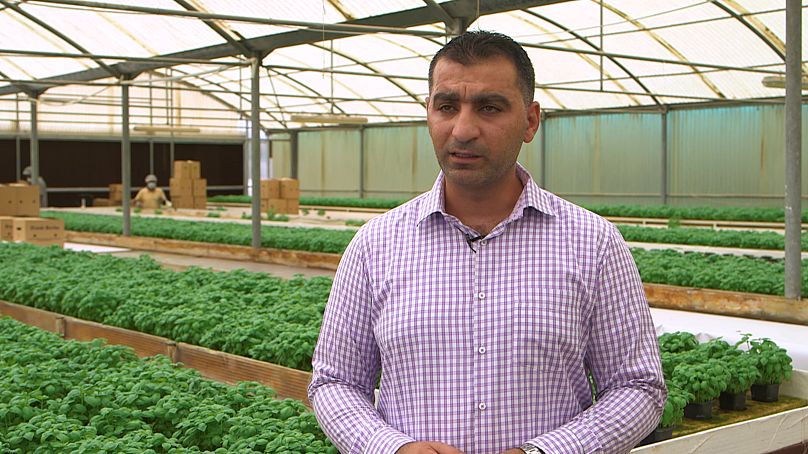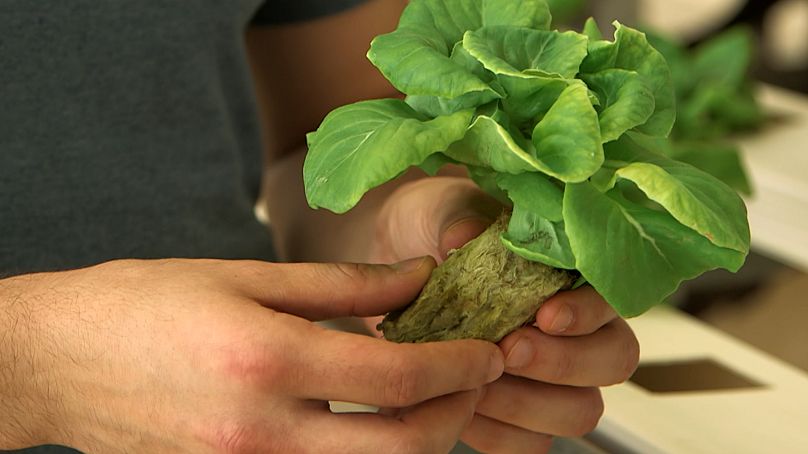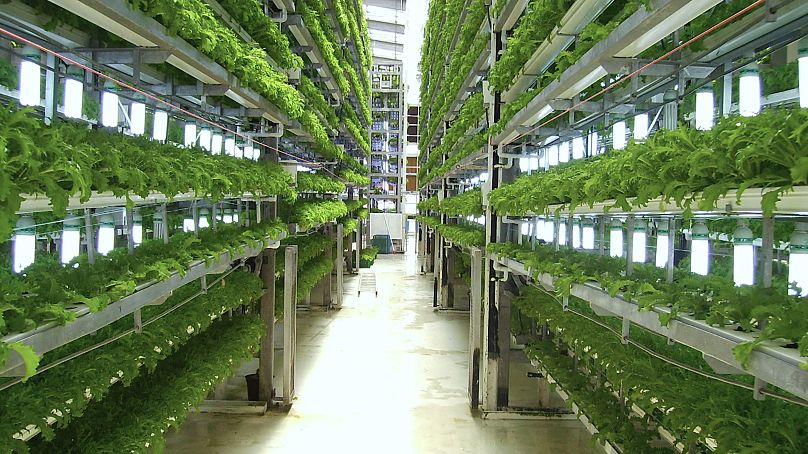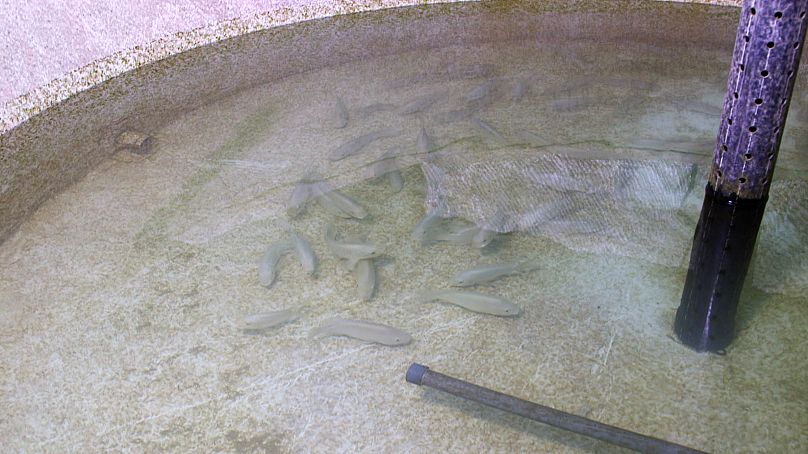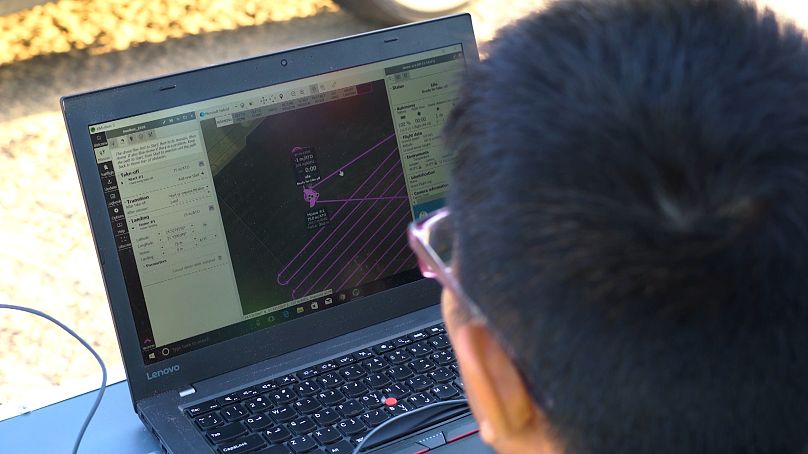A Syrian farmer in the UAE is producing a variety of salad vegetables and herbs in the inhospitable climate and terrain of the region.
A Syrian farmer in the UAE is producing a variety of salad vegetables and herbs in the inhospitable climate and terrain of the region.
 ADVERTISEMENT
ADVERTISEMENT
 ADVERTISEMENT
ADVERTISEMENT
Amjad Alkhal, who works as an agricultural engineer at Emirates Hydroponics Farms, uses a hydroponic farming system - an innovative method of growing plants without soil - but instead using a liquid nutrient solution.
Amjad Alkhal grows produce in the desert using a hydroponic farming system
Chilled water passes through insulating tubes to nourish plants like lettuce, which are planted in a fibrous material called rockwool.
Rockwool is made of crushed rocks and holds water like a sponge. Once the water has completed a cycle, it is drained back out to be filtered and reused.
In this process crops are planted in rockwool, a fibrous material made of crushed rock
Using alternative farming systems has saved Alkhal around 90 percent of the water that he would have used by deploying traditional farming methods.
The farmer also uses a vertical farming rotatory field - a stackable, revolving farm bed with 18 rows. This set-up has also saved Alkhal space, allowing him to be located closer to the city centre and deliver produce to stores faster, which in turn has reduced the farm’s environmental footprint.
“That rotatory greenhouse, which we applied in 2005, is the first rotatory greenhouse in the Middle East,” says Alkhal, “Due to the system, if you were going to plant in the same area for traditional agriculture it would need around six times [the space of] this one.”
Alkhal’s rotatory greenhouses use six times less space than traditional agriculture
Emirates Hydroponics Farms is approximately two hectares large, equivalent to the size of two rugby fields. Alkhal is able to produce around 500,000 lettuce plants - including nine varieties - and two million herbs each year.
Like Alkhal, many UAE-based farmers grow their crops on 'marginal land' - meaning that it has low agricultural worth due to factors like poor soil, little freshwater and harsh temperatures.
The International Center for Biosaline Agriculture is also working to find homegrown solutions in the UAE, exploring ways to get the most out of scarce resources like freshwater.
The centre uses salty seawater to farm certain crops that are both salt and heat tolerant, such as quinoa and mustard plants.
Other than using salt water for agriculture, the ICBA has an ‘integrated aquaculture’ that desalinates naturally salty groundwater to produce freshwater for farming. It also produces brine – a highly concentrated salt water - to farm fish.
The ICBA enriches the water with fish waste products to fertilise crops
In a separate operation, this brine water is enriched with fish waste products, and used to fertilise a sea-bean-like vegetable called salicornia.
Yet another growing trend in regional agriculture is so-called precision farming, which gives plants the exact amount of what they need to flourish.
“Date palms require about 50 litres [of water] a day in the winter and about 150 litres in the summertime. Whereas if you talk to any farmer, they provide more than 300 liters a day per tree,” explains ICBA’s Director Ismahane Elouafi, “With precision agriculture, you give the information to the farmers that they don’t need to use more than 50 litres, and sensors can also make the irrigation stop at a certain time.”
Drones are used to measure plants hydration, allowing for a precise irrigation system that saves water
This type of ‘smart farming’ uses drones with sensors to measure a plant's hydration. It is currently being applied in a variety of ways in the UAE, which is investing in new food technologies.
The country is planning to build in Dubai the world’s largest vertical farm later this year. Construction is set to being in November.
In addition, Masdar - a sustainable city in the desert of Abu Dhabi set up with an original investment of $15 billion - plans to test smart home farms, whilst looking at ways to better conserve energy and water nationwide.











